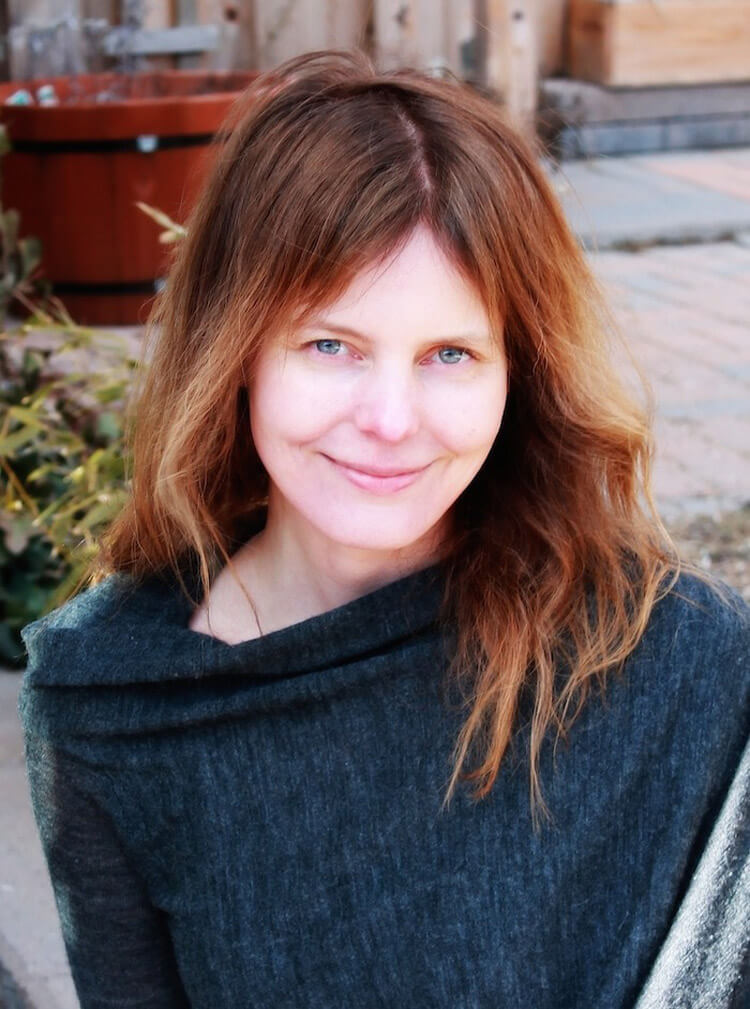
It is questionable to reduce an artist’s work to a single idea or concept, but so much of composer Anna Höstman’s music is about nature that it is hard to ignore: how it adapts, grows, sings and dies, its deep mysteries and solemn instincts, and how we, humans, relate to its complex network of existence. Höstman’s music is frequently delicate and melodic but never cloying, frequently quiet and meditative but never sombre. Her recent chamber works, like Fog for Ensemble Paramirabo and Moths Drink the Tears of Sleeping Birds for Quatuor Bozzini, have an intensive, sonoristic quality, while her other works, like yet, the rain falls more darkly (based on poems by the little-known Dadaist poet Emmy Hennings), are full of slippery, oblique melodies and carefully pinned instrumental doublings. It is music that is frequently enigmatic but also restful — a sort of peaceful exploration of the timbres, colours and concepts that the instruments have to offer. Höstman’s answers probe the compositional process of listening, conceptualising, and developing a relationship with the performer.

PLAYLIST
water walking for Mira Benjamin (solo violin)
yet, the rain falls more darkly for Carla Huhtanen and the Array Ensemble
Moths Drink the Tears of Sleeping Birds for Quatuor Bozzini
#1. How do you write your music?
I do a lot of thinking ahead of time, imagining what I’d like to hear, thinking about who is playing, what they are playing, how they play, thinking about how I can find myself in the sound of the instrument, what it might want to say, what I might want to explore, what world that instrument or set of instruments is familiar with, and what I can stretch, work with, push, pull, elasticize, merge with, separate from. Even if it takes a long time before I have the chance to start writing anything down, there is a kind of play that is already happening in my imagination…whether it has to do with the colour palette, the spectrum of timbral possibilities, or a concept and idea for the piece. A lot happens the moment a person asks me to write something, a relationship begins, and the performer is often in my thoughts. Once I begin writing down, I do everything in the question above… sketch, revise, work quickly and slowly, spontaneously and methodically. And I use Sibelius for notating. (But I haven’t bought the subscription).
#2. When do you write your music?
It’s not as regular as I would like. I remember a writer telling me once that she got up every morning and wrote until noon, like clockwork. I thought that was pretty amazing — it’s something I aspire to.
#3. In classical music, there is the concept of a “canon” of music, which is used by classical music establishments to monitor repertoire and assign a qualitative value to works. How valuable is this “classical canon” to you as a contemporary composer?
I became a composer because I really love music. Like everything one comes into contact with in their environment, there is a sifting that is continually occurring at the membranes. Some works pass in, other works pass out, some seem to remain, existing in perfect balance, while others, for one reason or another, seem to be refused access. This is perhaps an imperfect metaphor, but what I’m trying to imply is that I owe everything to the work of my composer colleagues — those of today, and all the works that are part of our historical past. Because of this endlessly engaging cloud of pieces in all its changing detail, I am aware of my own creative equilibrium. It’s allowed me to have a relationship to worlds outside of myself. This is not a static relationship, but dynamic. It’s not fixed, but rather in a state of continual change. And I enjoy this almost as much as anything. There are works from all periods and ages that I find incredibly beautiful or engaging or playful or puzzling or brilliant for their use of colour, or appealing because of their particularly rough, sludgy, thick or messy textures — I always keep them close. There are others that have come and go. And there are others that, surprisingly, I learn the most from because when I hear the work, my instinct is to completely rewrite it. And then, funny enough, there are those pieces that I don’t think about at all… I don’t remember a single detail.
#LUDWIGVAN
Want more updates on Toronto-centric classical music news and review before anyone else finds out? Get our exclusive newsletter here and follow us on Facebook for all the latest.
- PREVIEW | U of T Faculty of Music Brings Salvatore Sciarrino to Toronto - January 27, 2017
- PREVIEW | The Music Gallery Gears Up For The Viking Of 6th Avenue - November 25, 2016
- SCRUTINY | Esprit Orchestra Salutes The Legacy Of R. Murray Schafer - October 28, 2016



